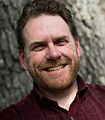LIVING WATER SMART IN BRITISH COLUMBIA: “The value of projects like EAP, the Ecological Accounting Process, to the asset management program in Oak Bay is that it helps us better understand the financial case for Bowker Creek. We are then able to make some planning decisions about how much money to put aside to sustain and maintain the creek for the future. Council buy-in is important,” stated Dan Horan, Director of Engineering & Public Works (October 2021)

EAP provides communities with a philosophy, pragmatic methodology and metrics to make the financial case for annual investment to prevent degradation and improve the condition of ecological assets that constitute a stream corridor system. This would put maintenance and management (M&M) of stream corridor systems on an equal footing with constructed assets (municipal infrastructure). Once local governments embrace a guiding philosophy that ecological services and use of land for development are equally important, then the next step is for them to include M&M budgets for stream systems in their Asset Management Plans.










